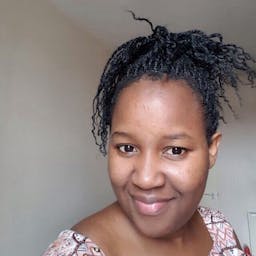What does the new FGM/C death means for the campaign?
May 28, 2019
Story
When Fatmata Turay, age 19 was taken to that female circumcision bush in Maboreh chiefdom, Bombali district in Northern Sierra Leone, I wonder if the thought of death had reigned on her mind. Even the thought did, she had no right to defy what tradition has imposed on her. The decision to be cut or not was not hers but the initiators (Soweis).
Perhaps she may have been shrouded by the sounds of the 'bondo' drums being beaten, the sounds of crowds of 'bondo' women singing the most popular 'bondo' song, usually sang in chorus to disguise the overwhelming fear, pain and untold misery the experience brings to the body and soul of victims. The singing and dancing is a disguise to shadow the pain, trauma and violence involved in the procedure. That may have prevented her from thinking about what became her fate.
Sadly she passed after her circumcision. Post-mortem result states she was ill before the initiation. Knowing this why was she forced or cajoled to go through the horrendous process if they knew she was poorly? If at all it was her choice to be cut, didn't the initiators think it was best advised that her surgery was postponed until she felt better? Don't they think her rights to life surpasses that of her 'willingness' to be cut ?
Fatmata's death is not the first, in 2014, a 9 year-old girl died under forced FGM/C in Bongama village in Eastern Sierra Leone. FGM/C deaths have been ongoing for as long as the practice has existed. Meanwhile increased awareness about the impacts of the practice has lead to the recent reporting of it deaths.
Yet, the Soweis are so powerful that they care less about any implications their actions may bring on them. The Bondo society could dictate who the country's next leader would be. For such reason, politicians hardly interfere in their practice. Some have even openly support the practice to woo votes.
However, current special representative of the UN secretary General on sexual violence in conflicts Zainab Hawa Bangura attempted to condemn the practice. This cost her the votes of fellow Sierra Leonean women when she contested in the 1996 presidential election under the Movement of Progress party. She was viewed as one who have gone astray, poisoned by foreign ideologies against our almighty culture.
Madam Bangurais tipped to succeed incumbent president Ernest Bai Koroma. She still holds very strongly to her stance regarding FGM/C. Her contesting and winning the 2018 election is crucial towards ending the FGM/C in Sierra Leone.
Well, hopefully.
When current gender Minister Dr Sylvia Blyden and her deputy Rugiatu Neneh Turay were appointed, hopes were high among activists that the time was nigh for the end of FGM/C in the country. Madam Turay is well known for her anti-FGM/C campaign while Dr Blyden is renown for her stance on women's rights.
Unfortunately, this has not been the case. Dr Blyden believes FGM/C should be a choice and not imposed on any girl under the age of 18. Meanwhile, everyone in Sierra Leone knows that a girl or woman can be under the control of the adults around her well after age 18.
Dr Blyden who is a medical doctor helped in Fatmata's post-mortem and was swift to announce that the 19 year old died of causes other than FGM/C. Even though the post-mortem results exonerate the three initiators and a nurse whom were previously arrested following Fatmata's death, it still didn't justify her death especially knowing she was not in good health prior to her initiation. Will Fatmata's death change the FGM/C debate in Sierra Leone? Will her death calls for prior medical assessment on future initiates?
FGM/C is still legal in Sierra Leone despite several open commitment by successive governments to make it illegal. Yet a ban on it during the Ebola outbreak is still in place even though it's not being adhered to by initiators (Soweis). Yet, the minister didn't think the initiators should be held culpable for Fatmata's death. I wonder why.
According to Unicef FGM/C affects nine in ten Sierra Leonean women and girls . Meanwhile it is believed that Fatmata's death is one of many hidden FGM/C deaths in rural areas that are unreported.
While Iwish for a time women and girls will be protected from forced FGM/C, the launch this week of the 'Not In My Name' anti-FGM/C campaign by three organizations; Equality Now, ProjectAcei and the Girls Empowerment Summit Sierra Leone renewed my hopes about the end of FGM/C in Sierra Leone. Hopefully, Fatmata's death will help boost the campaign and a change in the FGM/C debate for the good of victims.




